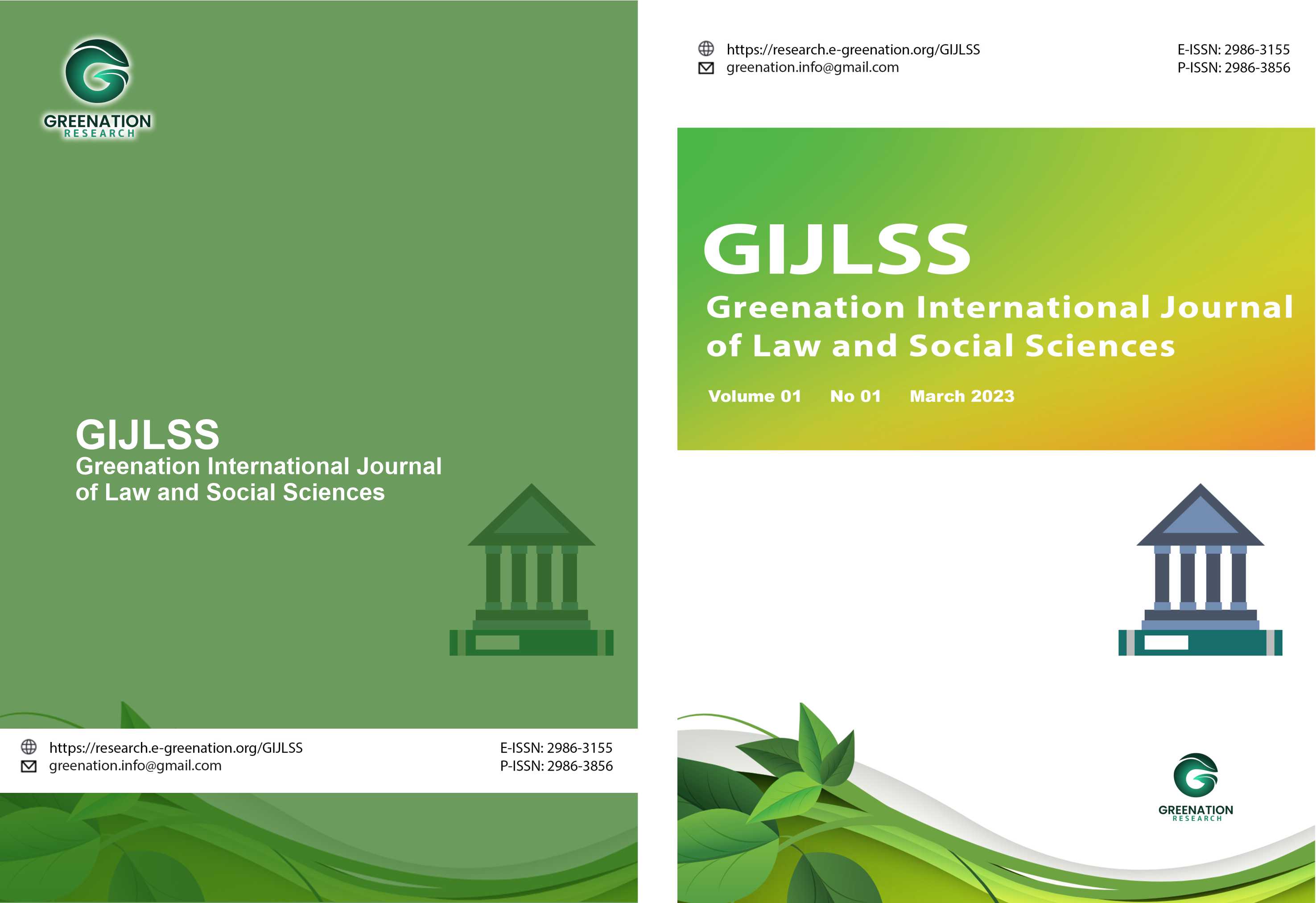
Focus and Scope
Greenation International Journal of Law and Social Sciences (GIJLSS) is a journal that uses a blind peer-review model that can be accessed online. GIJLSS aims to publish a journal containing quality articles that will be able to contribute thoughts from theoretical and empirical perspectives for the advancement of technology and education. The writings on GIJLSS will make a significant contribution to critical thinking in the scientific field in general, particularly in the fields of Law and Social Sciences.
The scope of fields contained in GIJLSS includes the following fields:
- International Law
- Constitutional Law
- Civil Law
- Economic Law
- Environmental Law
- Criminal Law
- State Administrative Law
- Technology, Information, and Communication Law
- Human Rights Law
- Islamic and Family Law
- Agrarian Law
- Political Science
- International Relations
- Administrative Sciences (Commerce, State, Public, Development, Etc.)
- Criminology
- Legal Science
- Science of Government and Management
- Social and Political Sciences
- Development Studies (Development Planning, Area, City)
- National Resilience
- Police Science
- Public Policy
- Other fields of political science that have not been listed
- Social Welfare Studies
- Sociology
- Humanities
- Regional Study (Europe, Asia, Japan, Middle East Etc.)
- Archeology
- Science of Sociology
- Population (Demography and Other Population Studies)
- History (Science of History)
- Cultural and Educational Studies
- Islamic Broadcasting Communication
- Communication Studies
- Anthropology
The scope of fields included in GIJLSS covers the following areas: Published articles on research results and literature review with acceptable research methodologies, qualitative studies, quantitative studies, or a combination of both, statistical analysis, case studies, field research, and historical studies. GIJLSS accepts manuscripts from various related parties, such as relevant researchers, professors, students, policymakers, scientists, and others.






















